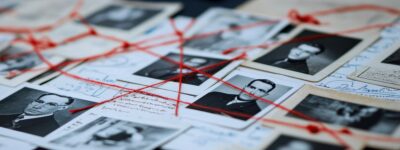Distant reading the Industrial Age: Natural language processing research in ‘Living with Machines’

FBK Aula Piccola
Fondazione Bruno Kessler - Polo delle Scienze Umane e sociali
This talk explores the intersection of digital history and natural language processing (NLP) through the lens of the Living with Machines project, one of the largest interdisciplinary research initiatives in the UK. Drawing on historical sources such as newspapers, maps, and census records, the project investigated how technological change during the Industrial Revolution shaped the everyday lives of ordinary people. The talk will highlight case studies including methods for detecting atypical animacy in nineteenth-century texts, improving toponym resolution in noisy historical newspapers, and leveraging dictionaries and temporal signals for sense disambiguation. These examples illustrate both the opportunities and challenges of using large-scale computational methods to study cultural and social change, while also raising broader questions about interdisciplinarity, reproducibility, and the role of data science in historical inquiry. As part of the talk I will also outline my own journey from a background in history to working as a data scientist at The Alan Turing Institute.
FEDERICO NANNI | The Alan Turing Institute, London
Seminar cycle: “AI and history“
Organization:
Federico Mazzini (Università degli Studi di Padova)
Andrea Pojer (Università di Trento – FBK-ISIG)
Massimo Rospocher (FBK-ISIG)
Sandra Toffolo (FBK-ISIG)
ISIG is accredited or qualified to provide training for school staff in Trentino.
The event will be held in English.
The presentation will take place in presence in FBK’s Aula Piccola, subject to availability, and online.
Registration is mandatory by 3 October 2025 at noon.
***
Image: AdobeStock_1037404632
Speakers
-
Federico Nanni - SpeakerThe Alan Turing Institute, LondonFederico is a Senior Research Data Scientist at The Alan Turing Institute, working as part of the Research Engineering Group. He leads research engineering efforts in adopting and adapting large language models for a wide range of research applications. He also holds an honorary position at UCL’s Advanced Research Computing Centre, where he provides training and supervision to students on large language models and their applications in research.
Registration
Registration to this event is mandatory.
RegisterContacts
Organizers
 The initiative was also realized thanks to the contribution of "Direzione generale Educazione, ricerca e istituti culturali" of the Ministry of Culture.
The initiative was also realized thanks to the contribution of "Direzione generale Educazione, ricerca e istituti culturali" of the Ministry of Culture.